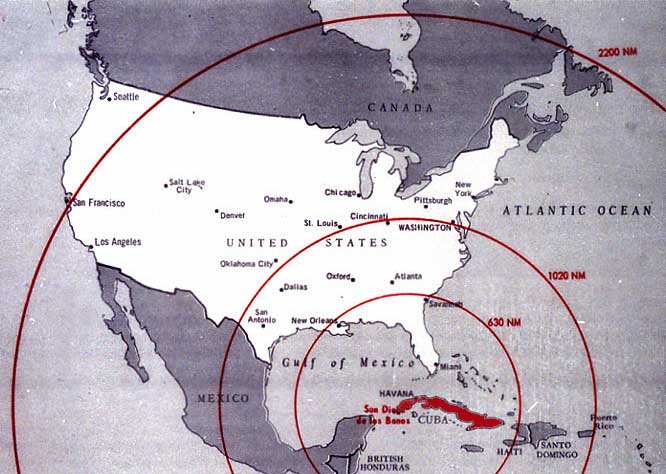Understanding Iran
July 3, 2009
With tomorrow being the Fourth of July, I hope you'll celebrate our independence by examining the following contrarian viewpoint. Expressing such perspectives would not be allowed in an authoritarian state, and integrating different perspectives frees us from a one-dimensional world view.
Ahmadinejad's Iran and Kim Jong Il's North Korea are the two remaining poles of President Bush's Axis of Evil. While there are grounds for the mainstream media depicting these nations as rogue states run by "nut-job" madmen, the contrarian viewpoint adds an important dimension, thereby producing a more complete picture and allowing more rational decisions. This message deals with Iran, while the next one will treat North Korea. Because we are already familiar with the mainstream view (e.g. Ahmadinejad's outrageous Holocaust denials), both messages emphasize the contrarian viewpoint.
We view our relationship with Iran through the prism of 1979 when, in violation of all international norms, Iranians stormed our embassy and took its personnel hostage. In contrast, the Iranian viewpoint revolves around 1953, when a CIA-backed coup overthrew the popular, democratically elected Mossadeq government and installed the Shah, beginning what many Iranians regard as a twenty-six year reign of terror under a police state. (Of course, when that regime disintegrated, it led to an even worse reign of terror under the ayatollahs.)
In spite of the antagonism and fear that Iran and Israel bear for one another, there is a surprising parallel between their world views which is described by Trita Parsi in his book, "Treacherous Alliance":
And like Israelis, Iranians are deeply suspicious of the outside world. While Jews have been persecuted and have survived a Holocaust, Iranians have fought colonization, annexation, decades of foreign intervention, and, last but not least, an eight-year war with Saddam Hussein's Iraq, in which virtually the entire world - including the United States - sided with Iraq. When Saddam invaded Iran in 1980 ... it took the Security Council more than two years to call for withdrawal of the invading forces. (Compare that to Saddam's 1990 assault on Kuwait, when a Security Council resolution passed within 12 hours of the invasion) ... Another five years passed ... before the UN addressed Saddam's use of chemical weapons against Iranian soldiers and civilians. (The United States and Western European countries either directly sold components for chemical weapons to Saddam or knew and quietly approved of such sales.) ... The United States later cited the same crimes to justify its invasion of Iraq in 2003. For the Iranians, the lesson was clear: When in danger, Iran can rely on neither the Geneva Conventions nor the UN charter for protection. Just like Israel, Iran has concluded that it could rely only on itself.
Our practice of threatening Iran, particularly with nuclear weapons, increases the motivation for that nation to develop its own nuclear capability. Three years ago, during the Bush Administration, Seymour Hersh wrote in The New Yorker:
A senior Pentagon adviser on the war on terror expressed a similar view. "This White House believes that the only way to solve the problem is to change the power structure in Iran, and that means war," he said. The danger, he said, was that "it also reinforces the belief inside Iran that the only way to defend the country is to have a nuclear capability." ... One of the [American] military's initial option plans [for destroying Iran's nuclear program] ... calls for the use of a bunker-buster tactical nuclear weapon, such as the B61-11, against underground nuclear sites.
With all the mistakes on both sides, reducing tensions with Iran will not be easy. But if, as appears to be the case, we have decided that war with that nation would have unacceptable consequences, hollow threats are a poor substitute for an honest assessment of how we might improve our approach. Moving from the self-serving, one-sided view offered up in the mainstream media would be a good start even if, as is likely, the other side initially maintains a childish insistence, "But, he hit me first."
Martin
================================
Martin Hellman
Member, National Academy of Engineering
Professor Emeritus of Electrical Engineering
Stanford University
REFERENCES:
1. Seymour Hersh's New Yorker
article
2. Trita Parsi's book is Treacherous Alliance: The Secret Dealings of Israel, Iran, and the U.S., Yale University Press, 2008. The quote is from page 6.
RESOURCES:
On May 7, I gave a talk "Soaring, Cryptography and Nuclear Weapons" at Google
which is now available on
YouTube.
If you prefer reading to watching, many of the ideas are in my
article of the same title.
If you missed earlier emails to the group, they are at http://nuclearrisk.org/resources.php.
SUBSCRIPTIONS:
To send a comment, change your email address, or unsubscribe please
send me a message at ___ (address deleted from web version to avoid spam).



